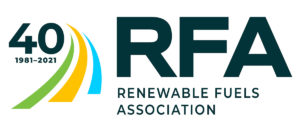 Industry organizations are pleased to see renewable fuels are included in the 2030 Greenhouse Gas Pollution Reduction Target under the Paris Agreement.
Industry organizations are pleased to see renewable fuels are included in the 2030 Greenhouse Gas Pollution Reduction Target under the Paris Agreement.
The fact sheet for the plan includes “spurring research, development, demonstration, and deployment efforts that drive forward very low carbon new-generation renewable fuels for applications like aviation, and other cutting-edge transportation technologies across modes.”
Renewable Fuels Association President and CEO Geoff Cooper says ethanol can do even more. “Just since 2008, nearly 1 billion metric tons of GHG emissions have been prevented from entering the atmosphere due to the increased use of renewable fuels to meet Renewable Fuel Standard obligations. In addition, recent research by scientists affiliated with Harvard, Tufts, and MIT shows that today’s average corn ethanol is reducing GHG emissions by almost 50% compared to gasoline. And with the adoption of carbon capture and sequestration, carbon-efficient feedstock production practices, and other new technologies, corn ethanol can be a ‘net-zero,’ carbon-neutral fuel by the end of the decade.”
American Coalition for Ethanol (ACE) CEO Brian Jennings agrees. “The mention of renewable fuels is welcome in President Biden’s plan to reduce GHGs. Today’s corn ethanol is next generation or advanced biofuel based on its ability to reduce GHGs by 50 percent compared to gasoline. In fact, ethanol is the only transportation energy source that can reach net-negative carbon intensity through carbon capture and sequestration and continued advancements within ethanol facilities and on-farm practices in how biofuel crops are grown. Other countries have initiated national ethanol policies as part of their countries’ global initiatives to decarbonize transportation fuels, and U.S. biofuel producers are ready to play a larger role in meeting these targets here and around the world.”
Agriculture Secretary Vilsack said USDA’s investment in biofuels infrastructure announced on Earth Day is part of the climate plan. “Biofuels we know have a better greenhouse gas footprint than petroleum based fuels so to the extent that we can increase higher blends of biofuels that’s going to have a benefit towards climate change and towards our reduction goals.”
USDA Sec. Vilsack on biofuels role in climate 1:58

 In honor of Earth Day 2021, the United States Department of Agriculture
In honor of Earth Day 2021, the United States Department of Agriculture  Ethanol industry stakeholders filed comments this week generally supporting proposed changes to E15 fuel dispenser labeling requirements and underground storage tank regulations to accommodate the safe storage of E15 and other higher blends, with a few changes. The rule co-proposes EPA either modify the E15 label or remove the label requirement entirely; and to modify the underground storage tank (UST) regulations to make it easier for station owners to demonstrate compatibility with E15 and possibly higher ethanol blends in the future.
Ethanol industry stakeholders filed comments this week generally supporting proposed changes to E15 fuel dispenser labeling requirements and underground storage tank regulations to accommodate the safe storage of E15 and other higher blends, with a few changes. The rule co-proposes EPA either modify the E15 label or remove the label requirement entirely; and to modify the underground storage tank (UST) regulations to make it easier for station owners to demonstrate compatibility with E15 and possibly higher ethanol blends in the future. The
The 
 This month marks the 25th anniversary for
This month marks the 25th anniversary for  The D.C. Circuit Court heard oral arguments this week in a case brought by oil refiners challenging the Environmental Protection Agency’s 2019 rulemaking allowing the year-round sale of E15.
The D.C. Circuit Court heard oral arguments this week in a case brought by oil refiners challenging the Environmental Protection Agency’s 2019 rulemaking allowing the year-round sale of E15.  The
The  After a big start to 2021, U.S. ethanol exports took a dive in February, dropping 38% after January’s volume set a record high for the month. Renewable Fuels Association (RFA) Senior Analyst Ann Lewis shared the numbers in RFA’s
After a big start to 2021, U.S. ethanol exports took a dive in February, dropping 38% after January’s volume set a record high for the month. Renewable Fuels Association (RFA) Senior Analyst Ann Lewis shared the numbers in RFA’s  Ethanol production is up but stocks are down, according to the latest Energy Information Administration (EIA) data analyzed by the
Ethanol production is up but stocks are down, according to the latest Energy Information Administration (EIA) data analyzed by the